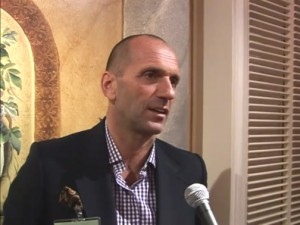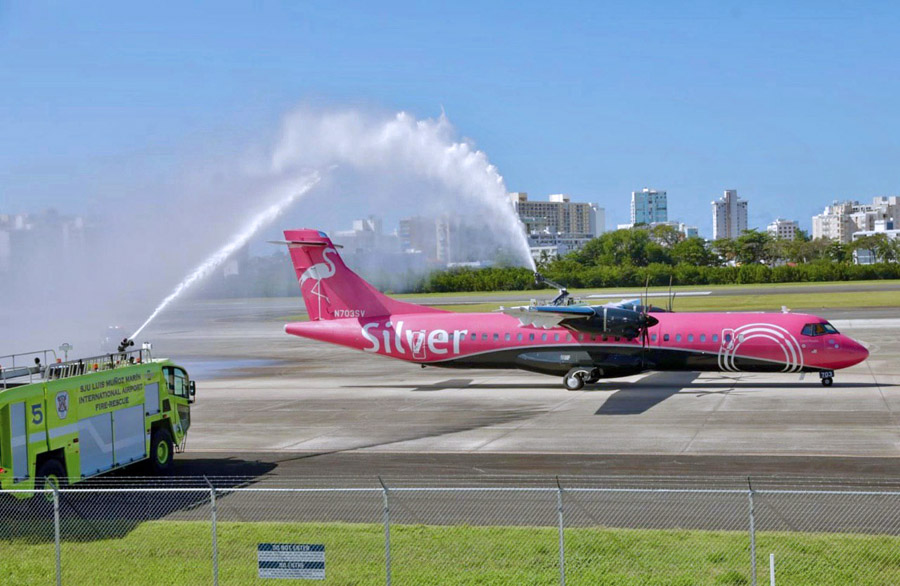Caribbean tourism ministers welcome, not fear, end to Cuba travel restrictions
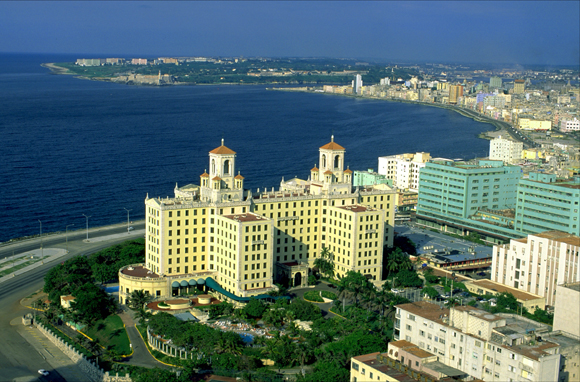
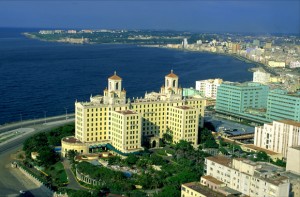
Panoramic view of Havana, with the venerable old Hotel Nacional in the foreground. (Credit: Larry Luxner)
For years, the conventional wisdom was that an eventual end to the U.S. embargo against Cuba would open the floodgates for millions of curious Americans dying to visit the once-forbidden island — while the rest of the Caribbean would, at least initially, suffer a sharp downturn in U.S. tourist arrivals.
After all, before the 1959 revolution that brought Fidel Castro to power, Cuba and Haiti were the region’s biggest destinations. Back then, relatively few Americans vacationed in the Bahamas, Puerto Rico, Aruba or the Dominican Republic.
But times have changed, and these days, tourism officials throughout the Caribbean don’t seem the least bit worried about the so-called “Cuba threat.”
In fact, the word Cuba was barely uttered during the course of the 16th annual Caribbean Hotel and Tourism Investment Conference in San Juan.
Of much more urgent concern to delegates during last week’s meeting at the Sheraton Puerto Rico Hotel & Casino was a punishing U.K. airline passenger tax that has dramatically boosted the cost of air travel between Great Britain and its former Caribbean colonies — and the lingering effects of the global economic slowdown that have hurt member countries from Barbados to Belize.
Yet just about every tourism authority interviewed at the San Juan conference told NIMB that an end to the U.S. travel ban would only help their islands.
“Forget the competitiveness issue. We have an island called Cuba just north of us that will open up in a democratic fashion,” said Josef Forstmayr, president of the 50-year-old Caribbean Hotel & Tourism Association, which has 725 member hotels and 375 other allied members.
“Cuban consumers have been behind the fence for so long that they’re just dying to get out,” said Forstmayr, an Austrian who’s also managing director of Jamaica’s Round Hill Hotel and Villas. “This is a starved market. The sooner we can create air links for them to travel, the better. There will be enormous opportunities for inter-regional investment.”
Hugh Riley, secretary-general of the Barbados-based Caribbean Tourism Organization, said he’s not worried at all about Cuba as a potential rival.
“We sell diversity. The fact that Cuba will become an even greater magnet to draw more visitors into the Caribbean is something we all welcome,” Riley said. “Cuba will also be a source of visitation around the Caribbean. It’s a two-way street, and Cuban people no doubt are as keen to get out an experience the rest of the Caribbean as the world is to experience Cuba once things change.”
Some 190 people attended CHTA’s San Juan event, though not a single Cuban official was among them — nor were any invited. That’s a consequence of the current state of U.S.-Cuba relations, which Forstmayr said has “deeply disappointed” him.
“If you remember in the ’90s, you had a real opportunity to open up [with Cuba] under President Clinton. We were all investing in it. We built bridges to Cuba and brought them in as members of CHTA. But then, the political realities changed, and it all fell apart,” he said.
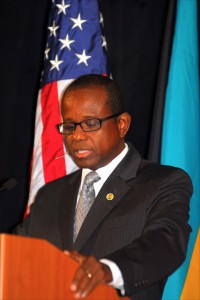
Hugh Riley, secretary-general of the Barbados-based Caribbean Tourism Organization (Credit: Larry Luxner)
“There’s a general feeling that once Cuba develops alongside systems of Western-style democracies — which will eventually happen — this is going to be our most important driving force for tourism development in the entire region. There will be some initial competitive advantage and some diminishing of arrivals into some of our islands,” he said. “Cuba is so geographically dominant, yet acts as a barrier between North America and South America. Just imagine when it’s open.”
Cuba ‘already open’
Alec Sanguinetty, director-general of the Miami-based CHTA, quipped that Cuba is already open — just not for Americans.
“Cuba already has major markets in Europe, Canada and South America, so we have to keep this in context,” he said. “It’s not new to tourism, so we don’t see this as having a major impact because [our member countries] have known for some time that the day will come when U.S. citizens will be allowed to visit. They’ve been preparing for it.”
Besides, he pointed out, “the initial movement will be Cuban-Americans returning from South Florida. With the infrastructure that is there now, the capacity to manage that influx will leave very little room for true visitors going to Cuba for a tourism experience.”
The undisputed leader in Caribbean tourism is the Dominican Republic, with 4.3 million tourist arrivals last year. Cuba, by comparison, received 2.7 million visitors.
Reason to worry?
Is Puerto Rico worried about an eventual opening of U.S. tourism to Cuba? Hardly, says Nicole Rodríguez, chief marketing officer at the Puerto Rico Tourism Co.
“Cuba has been under communist rule for so many years that people will want to go. But I don’t think it’ll be a threat to Puerto Rico specifically, because it will take so much time for them to develop the country,” she said. “Remember also that we have the advantage of no U.S. passports required.”
William Jonckheer, senior vice-president of the CTO and president of the Curaçao Chamber of Commerce, said he’s not particularly worried either.
“I think Cuba might become competition for the mega-destinations of the Caribbean such as the Dominican Republic and Jamaica, but it’s going to take Cuba 15 to 20 years to get up to par to where the rest of the Caribbean is now,” he said. You’ll have a lot of people visiting Cuba at the beginning, but in the short term is it not going to hurt the Caribbean.”
And if recent history is any guide, Cubans could one day stay in smaller, cheaper hotels across the region — much as adventure-seeking tourists from the former Soviet bloc have boosted tourism from Spain to Switzerland.
“Look at Eastern Europe and when it opened. The Russians are now creating winter seasons in the Alps that never existed before. The Alps are all full of Russians. They’ve filled up all the resorts,” said the CHTA’s Forstmayr. “There is no Caribbean people that doesn’t love to travel, and the Cuban consumer is going to be ferocious. To me, that’s the biggest opportunity of all.”

